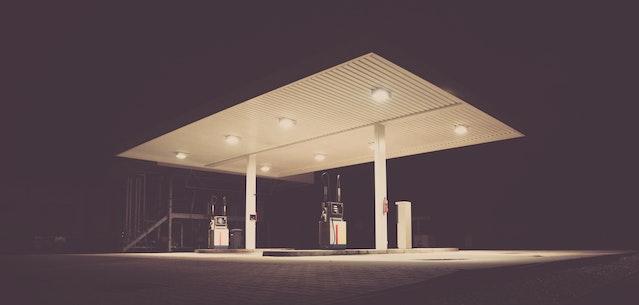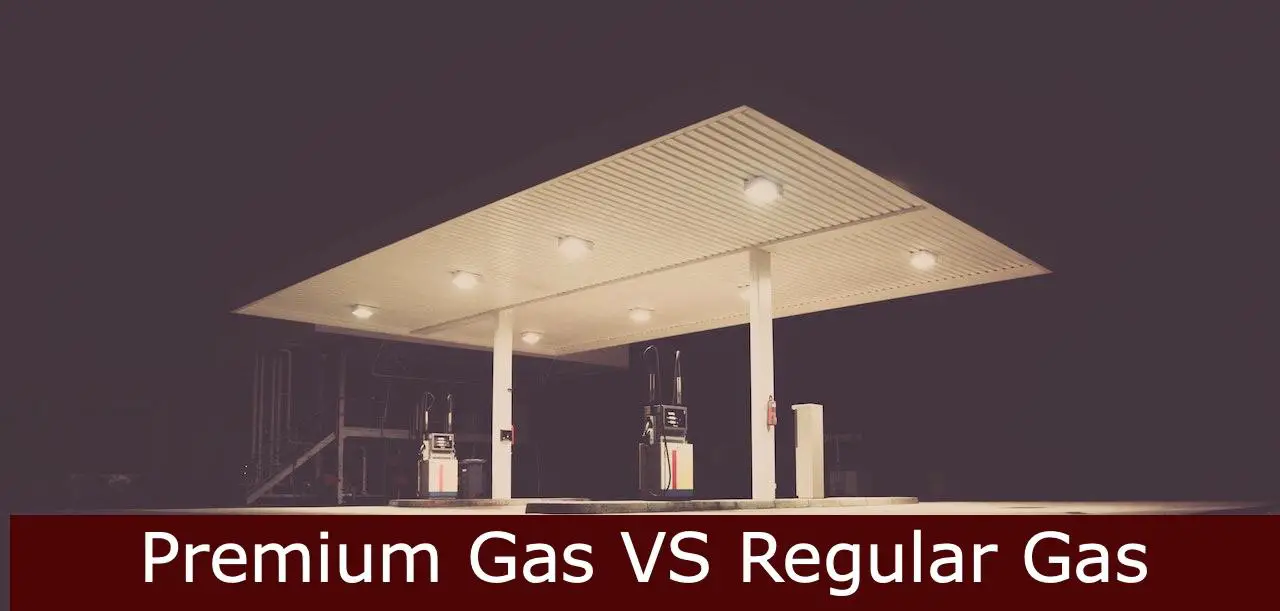Are you confused about which gasoline you should put your beloved car between premium gas and regular gas? Well, this is not only your concern but also for many. Whether you put gas in your small outdoor powered equipment or high-end engines, it’s always a turning point to put in the right gas.
Both premium and regular gas have many similarities and distinctions regarding price range, octane number, use purposes, engine types, etc. The most common deviations between premium VS regular gas are their price range and octane value. Special gas has higher octane (between 91 and 94) whereas standard gas contains lower octane (between 87 and 88).
Don’t figure out what the octane number does and what’s the specialty of both gases. No worries folk. This article is arranged to meet all the criteria and get into some interesting points about them.
Premium Gas Vs Regular Gas
See, there are not so many differences between these gases. Still, you should know the subtle distinctions you should know to identify them and decide which is going to fit your engine.
| Key Aspects Or Focusing Points | Premium Gas | Regular Gas |
| Suitable for | Advanced and higher compression ratio engines. | Commonly for the typical engines. |
| Octane Number | Between 91 and 94 | 87 |
| Detergent availability | Sufficient detergent content | Less detergent content than its rival |
| Additives | Additional or higher-grade additives | Less high-quality than its counterpart |
| Pros | Resists frequent carbon buildup and adds a significant amount of horsepower (up to 6 HP) | Better for the environment as it doesn’t contain lead compounds. |
| Cons | Not do anything excellent in an average engine. | Prone to cause engine detonation and cause engine knocking as it is lower-octane gasoline. |
| Cost | Higher priced than a standard one | Less expensive |
In-Depth Analysis Of Their Features And Other Factors

Now, take a close look at their features and other crucial factors to eliminate further hassles. Knowing them profoundly is required if you won’t be puzzled next time after entering the gas station. Without knowing about them properly, many folks waste their time thinking about which gas they should insert.
General Overview
Premium gas is a higher octane rating-based gasoline with excellent additives. With better additives, it is good to keep the engine fresh and clean. Conversely, gasoline with a lower octane rating (87) is called regular gas.
Don’t think an 88 to 90 octane rating means it’s a typical gas. Rather, this rating range is for mid-grade gasoline. However, using typical gas is the best practice if you have an older vehicle.
Types Of Engine Or Engine Compatibility
When you switch any gasoline for your engine, the first thing that comes to mind is compatibility. Which gasoline you use mainly depends on the engine type. Most standard gases are used in the normal operating engine or typical engine.
Notwithstanding, the special gasoline is mostly used in turbochargers configured and higher compression ratio engines. In other words, you can add this fuel to a high-performing engine. Apparently, there will be no significant changes if you use premium gas in an average-engine car that needs typical gas.
Note: Lower compression ratio motor burns high-octane gasoline quickly, so typical gas does better in this engine.
Mileage Improved
In terms of mileage expectancy, special additives-based gasoline (special gas) is ahead of standard gas. Indeed, premium gas is impeccable to intensify the engine efficiency and potentiality, except in some areas. You will be amazed to know that special gasoline is known to e high mileage gas.
As per as you maintain the right guideline provided by the manufacturer and use the gas in a high-performance engine, it will burn slowly, which in turn saves fuel economy.
Conversely, standard gas provides better mileage in the compatible engine but not that much provided by the special gas. Fortunately, the lasting time of both gases is almost the same.
Octane Rating
The real distinction between special and standard gas is mostly seen in their octane rating. First, it’s essential to know how octane ratings are described.
According to a government site “Fuel Economy,” Octane rating usually resists pinging or engine knocking during combustion. Anyway, regular unleaded gas typically consists of 87 octanes whereas premium-quality gasoline octane ranges from 91 to 94.
Cost Comparison
Now, let’s take a look at the price of these two available gases. When it comes to a price comparison between these two, it has to be said that regular gas is cheaper. In some cases, the price of regular gas is 0.7 cents less and in others, it is 0.5 cents less. Generally, regular gas is available at lower rates than premium gas.
Eco-friendliness
As usual, it’s always a concerning matter when you use gas or any ingredient with chemicals, you need to specify whether they are good for the environment. When it comes to comparing the environment-friendliness of these gases, I, however, give an A Plus mark to the premium gas. Why? Well, the reasons are pretty simple as it sounds.
High-octane gas uses improved additives that keep the engine clean and burn the gas accurately. Not more, not less. On the other hand, typical gas uses additives but not the same as special fuel. This is why premium gas, however, wins this competition.
Longevity
The comparison of these gases, especially in this section, is tough. How much the gas will last depends on how to manipulate them. Don’t understand? Suppose, you have a high-end motor with a better configuration or supercharger feature. But you put regular gas here. Isn’t that a stupid thing?
Remember high-compression ratio engines take premium gas smoothly and last long. Again, if you use high-octane gas in an average operating engine, the gas burns unnecessarily, causing fuel loss. So, both gases last long if you utilize them correctly.
Additives Variation
Usually, high-octane gas uses better additives than low-octane. Better additive means better engine performance and better cleaning. Premium gas uses detergent (more) to take care of the engine and keep the engine in good condition. It resists carbon from forming or building up and keeps the engine running for a long time. But typical gas uses additives that don’t meet the criteria like premium gas.
Increased Engine Efficiency
Both gases are impeccable options and they do a lot to keep the engine performance in optimal condition. However, if you use them correctly and the correct engine, they are determined to provide a satisfactory result. Still, considering every aspect between them, special additives-based gas wins the race here.
Storage
When it comes to storing gas for a long time, choosing premium quality gas is wise. If you compare the storing time for both gases, premium gas usually stores for 9 months. In contrast, you can store regular gas only for 3 months. This is why you need to pay more by changing the gas repeatedly.
Reasons For Using Premium Gas: Know the Benefits
Understand the true benefits and get ready to put this gas in your heavy-duty engines.
- Higher octane means better engine performance and a better mileage guarantee.
- Higher octane gasoline reduces carbon build-up and CO2 emission.
- Special additives (detergent) help to keep the engine optimal working and keep the engine super clean.
- Special fuels withstand any engine damage like engine detonations to keep the bearing and rubber bushings good.
- The most significant reason for using these gases is better storage. You can store them for about 9 months whereas regular gas can be stored for only 3 months.
Reasons For Choosing Regular Gas: Know the Benefits
There are some special reasons to use regular gas in your vehicle or outdoor powered equipment. Here they are.
- Environmentally friendly.
- Affordable and efficient in some cases.
- Beneficial for regular engines.
Disadvantages Of Premium Gas
- You may face hard starting if you use them in an incompatible engine.
- Works incredibly well with the engine with a higher-compression ratio, but not with the regular engine.
- Sometimes, higher octane gas attacks the lubrication factor.
- In most cases, premium gas is nothing but regular gas.
- A little bit more expensive than typical gas.
Disadvantages of Regular Gas
- Carbon build-up is a common yet concerning damage caused by regular gas.
- Less efficient additives hurt the engine over time as it isn’t as effective in cleaning the engine.
- In a 2-stroke engine, there is no oil pump and sump, so it’s not suitable for the engine.
- May seize up and ruin the engine.
Conclusion
There is the end of the controversial thoughts between premium gas vs regular gas. You may now know the ins and out of them delicately. However, knowing less about gas, you may wonder which gas is suitable for your vehicle. You may find yourself at a loss. This is why knowing about them is obligatory.
Both gases are the perfect solutions for different engines. Premium Gas is a superb addition to a high-performance engine. Alternatively, regular gas is an outstanding choice for typical engines. Also, if you want to save some additional bucks, go for the regular.

